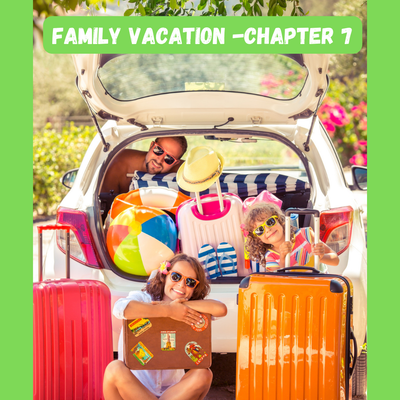SOUVENIRS, GIFTS AND OTHER NECESSITIES - CHAPTER 7
Treasure Tower Rewards Canada Ltd. on 2024 Jun 26th
When you are on a budget, you have to be careful how you spend your money, particularly when it comes to this category. It is too easy for you to get caught up in the moment. You want to show people in a concrete way where you have spent your summer vacation. You want to thank people – your neighbors for keeping an eye on your house, the cat or dog sitter, the house sitter. You also want to bring back items for close friends. You do not want to appear cheap, but you cannot afford to be over generous with your money.
The first thing you must remember is that it is YOUR summer vacation. The second thing you need to do is make a list. Not only must you make a list of people you want to give things to, but you must stick to it. You have to write down the names of everyone. You must then look at your budget for gifts and souvenirs. Do not create this part of the budget until after everything else is accounted for. Gifts and souvenirs are not essential.
Once you have the initial list, whittle it down. Take into account your budget and place a price range for each group or individual. Short list some people on the list. Consider whom you really want to give gifts to, e.g., best friends, as well as a few musts, e.g., your boyfriend’s mother. Once you have done this know who in the group can accept things such as a tacky postcard or anyone who adores natural gifts, e.g., seashells or unusual rocks, you can find for free.
With list in hand and mind look for places to shop before you go. Check the tourism sites online as well as other local sources. You may also want to read the guide books covering your destination. Guidebooks are excellent sources for such information. They will note special markets. Some provide you with a wide list covering a range of shopping experiences. They offer suggestions where to shop for high-end and low end goods. They note malls, exclusive stores and markets. They mention both mass produced goods and local products or crafts. Guide books also helpfully tell you what the characteristic or emblematic products of this region or city are.
Use the guide books to help you find the local markets. Often you can find the best deals at places where the local people shop. Check out farmers’ markets for a variety of goods. You may also want to go to flea markets. Some places combine the farmers’ market with a flea market. This offers you a chance to sample a wider assortment of goods with a range of prices.
Before you decide to purchase any item, do comparison shopping. Sometimes the same item will decrease in price the further you wander from the core tourist area. It is worth it to wander away from the well-traveled routes at time to find bargains or, in some cases, more realistic prices.
Talk to locals and find out where they shop. This may lead you into an entirely new experience. It may result in you buying something truly authentic for the region. It can decrease your overall expenditures for this category.
If you go to a museum, you may find their sales items, while selective or restricted, are better for value than similar products. Sometimes, they can provide you with unique articles at a good price and even duty free. If you are looking for duty-free pieces, you can always pick them up at a duty-free shop. Before you do so, make sure you really are saving money. Sometimes, duty-free products tend to be high-end, expensive goods you would not normally purchase.
Perhaps, one final word on how you can maintain your budget in this section. Do not buy something for the sake of buying it. Do not purchase items because they are a deal. And DO NOT stray from the allotted money or the list, unless you have already saved so much you can do so without subtracting from the more important sections such as food, lodging and transportation.

